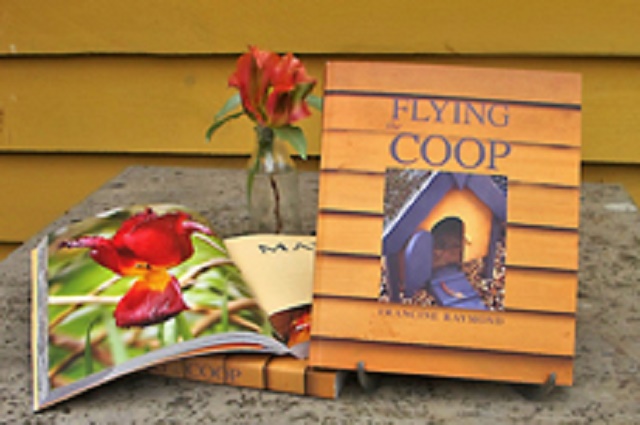
Earlier this month, we caught up with the wonderful Francine from The Kitchen Garden to talk about keeping hens, making a career out of gardening, and getting the most out of a small plot. Take a look at everything we spoke about below.
Our interview with The Kitchen Garden
1. What made you decide to use your talent for the garden and hen-keeping after a career in fashion and illustration?
Like most good things, my love for gardening just evolved, and while my children were growing up, I was spending more time at home and enjoying time spent outside with them. Several years later, I decided to open a small shop in my garden. While I was looking for unusual products to sell, I thought a small series of books on how to grow veg and fruit and how to keep hens would sell well, so I self-published. Looking back, I wonder where the energy and nerve came from!
2. Do you have any advice for someone who wants to create a career out of gardening?
Starting from scratch, I think a good basic knowledge working alongside an experienced gardener would be ideal. Make sure any courses you apply for have a hands-on approach. There’s a shortage of gardeners, and far too many garden designers.
3. As someone who has a keen interest in hens and egg farming, could you give advice to any first-time hen owners?
Start small. You don’t need to supply the neighbourhood with eggs and you may change your mind about the type and breed of hens you want to keep. Make sure you’ve set up your run, house and feed supply before your hens arrive, and go on a course to learn all there is to know. Then you can relax and enjoy your first hens, and learn through your own experiences.
4. What advice would you give to keep your plants protected from the beaks and claws of hens?
The best plan is to keep your hens in a separate part of the garden – a small orchard would be ideal. If you don’t have that sort of garden, fence off your veg plot, and cloche any other plants you value, especially just after planting. Choose a breed of hen that does less damage – the best layers make the worst co-gardeners, and allow them as much freedom as their safety and your gardening ambitions allow.
5. Pollination is a huge part of gardening. Do you have any advice on the best way to encourage pollinators to come to your garden?
The three ways to encourage wildlife into your garden is to provide food, shelter, and water. Pollinating insects need year-round nectar producing plants – starting with early flowering bulbs, shrubs and trees right through to ivy. Leave piles of logs, stones, and bundles of hollow stems in sunny spots around your plot and make sure there’s easy access to fresh water for insects. A large bowl filled with pebbles topped up with rainwater is ideal.
6. How do you make the most out of small-scale gardens? Are there any must-dos or things to avoid?
It’s amazing what a small plot will produce. You need to be well organized to make the most of a small space and concentrate on food you really enjoy that’s hard to come by and is best eaten fresh straight from the plot. Fruit is especially easy, productive and good to look at, and many varieties come in dwarf, cordoned or pot sized plants. Use walls, try shelves, containers and grow veg in succession. Try bantam hens or call ducks if you want eggs and slug destroyers.
7. You have a lot of tips about gardening in different seasons. Which season do you most enjoy in terms of the harvest?
Spring is my favourite time in the garden. Nothing beats the first rhubarb, sorrel, and early salads. Summer is an explosion of delicious treats and autumn is the culmination of all your efforts. I like to leave my garden fallow and undisturbed over winter, so we all get a rest.
8. For someone who is a complete beginner, what are the main things you would need to do to start growing your garden and making it your own?
Plan the different areas. I like to keep the main food growing near the house, next to the outdoor kitchen and eating spot. I keep this part of the garden fenced off from the hens with cordoned apples and a gate. Work out which bits get the most sun and which areas need their soil improved. Don’t forget storage and composting areas. If you can spend a year deciding and seeing what grows naturally there already, that would be good, and check out what your neighbours are growing too.
9. As we live with the unpredictable UK weather, what advice would you give for anyone wanting to grow their own edible crops?
Install water butts and harvesting devices to collect rainwater from your roof, shed or garage. A cold frame is a good idea to protect and harden off early plants. Keep frost protection fabric to hand until May to cover vulnerable delicacies. Every year seems to be different, so gardeners just shrug and hope they’ll do better next year.
10. Is there an ideal time of year to begin gardening from scratch?
I think late autumn is the best time to get your soil in good heart ready to sow seeds in spring. It’s also a good moment to install hard landscaping before it get’s muddy, and the ideal time to plant trees and shrubs while the soil is still warm, and they’ll be naturally watered over winter ready to flower as the weather warms up in the Spring.




